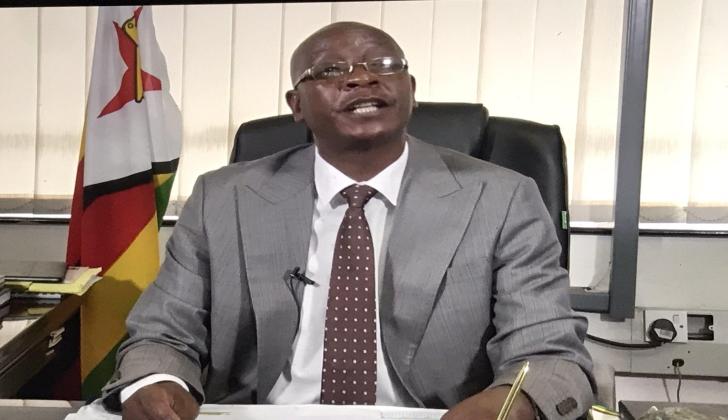News / National
Zimbabwe will not fund medical treatment in South Africa
23 Jul 2025 at 14:40hrs |
0 Views

Justice Minister Ziyambi Ziyambi has ruled out any possibility of government assistance for Zimbabwean citizens seeking medical care in South Africa, citing resource constraints and the need to prioritise domestic healthcare services.
Speaking during a recent parliamentary session, Ziyambi said it was not the responsibility of the Zimbabwean government to fund medical treatment for its citizens abroad unless the country had surplus resources.
"Those who went to South Africa did not go there for handouts," he said, responding to questions raised by lawmakers concerned about the welfare of Zimbabweans living in the diaspora. "Our limited resources must first be used to develop and sustain healthcare systems within our own borders. Only after that, if there are excess funds, can we consider support for those abroad."
His comments come amid increasing reports of Zimbabwean nationals facing challenges in accessing healthcare services in South Africa, including xenophobic sentiments and administrative barriers. In recent months, several health facilities and civic organisations across South Africa have come under scrutiny for allegedly denying treatment to foreign nationals, fuelling tension and raising concerns over the treatment of migrants.
Ziyambi's remarks have drawn a mixed reaction, with critics accusing the government of turning its back on struggling citizens forced to seek treatment elsewhere due to chronic deficiencies in Zimbabwe's public health system. Others, however, backed the minister's stance, arguing that limited government funds should be directed toward reviving local hospitals and clinics, many of which are underfunded, poorly equipped, and grappling with drug shortages.
Zimbabwe's health sector continues to face major challenges, including a shortage of medical professionals, ageing infrastructure, and frequent strikes by healthcare workers over salaries and conditions. The country has, for years, seen a steady stream of patients—especially those needing specialist care—crossing the border into South Africa in search of better treatment options.
Minister Ziyambi maintained that while the government sympathises with citizens in the diaspora, national priorities must remain firmly rooted in rebuilding the local system. "We cannot abandon our hospitals here and chase after people who chose to go outside the country," he said.
The government has recently pledged to increase health spending and rehabilitate facilities through local and donor-funded initiatives, but progress remains slow.
Speaking during a recent parliamentary session, Ziyambi said it was not the responsibility of the Zimbabwean government to fund medical treatment for its citizens abroad unless the country had surplus resources.
"Those who went to South Africa did not go there for handouts," he said, responding to questions raised by lawmakers concerned about the welfare of Zimbabweans living in the diaspora. "Our limited resources must first be used to develop and sustain healthcare systems within our own borders. Only after that, if there are excess funds, can we consider support for those abroad."
His comments come amid increasing reports of Zimbabwean nationals facing challenges in accessing healthcare services in South Africa, including xenophobic sentiments and administrative barriers. In recent months, several health facilities and civic organisations across South Africa have come under scrutiny for allegedly denying treatment to foreign nationals, fuelling tension and raising concerns over the treatment of migrants.
Ziyambi's remarks have drawn a mixed reaction, with critics accusing the government of turning its back on struggling citizens forced to seek treatment elsewhere due to chronic deficiencies in Zimbabwe's public health system. Others, however, backed the minister's stance, arguing that limited government funds should be directed toward reviving local hospitals and clinics, many of which are underfunded, poorly equipped, and grappling with drug shortages.
Zimbabwe's health sector continues to face major challenges, including a shortage of medical professionals, ageing infrastructure, and frequent strikes by healthcare workers over salaries and conditions. The country has, for years, seen a steady stream of patients—especially those needing specialist care—crossing the border into South Africa in search of better treatment options.
Minister Ziyambi maintained that while the government sympathises with citizens in the diaspora, national priorities must remain firmly rooted in rebuilding the local system. "We cannot abandon our hospitals here and chase after people who chose to go outside the country," he said.
The government has recently pledged to increase health spending and rehabilitate facilities through local and donor-funded initiatives, but progress remains slow.
Source - businessdaily.co.zw
Join the discussion
Loading comments…





























